- Home
- Thomas H. Cook
Red Leaves Page 2
Red Leaves Read online
Page 2
Our house, when I think of it now, had that same determined sturdiness. It was built of ancient wood, rough-hewn and very nearly petrified. The living-room ceiling rose at a forty-five-degree angle, supported by thick beams, and at the end of it there was a fireplace of gray stone. The grounds were also incontestably the product of a mind that sought security. The yard was thick with trees and wild brush that made it impossible to see the house from the road. An unpaved drive wound in a long lazy circle to the front of the house, then lifted up a short hill and circled back to the main road. It was possible to make the turn into the driveway and immediately disappear into densely covering forest. Save for that one break in the trees, no one would even have suspected that a family lived nearby. We lived on a desert island, as Meredith once said, in the middle of the woods.
I'd put on a couple of extra burgers because Warren had called earlier, sounding tired from his long day of house painting. I knew he hated spending Friday night alone, so I'd invited him over for a cookout. In recent weeks, he'd begun to drink more, and his fleeting efforts to "find the right woman" had declined both in number and intensity. The year before he'd fallen off a ladder while repairing a patch of rotted shingles on the small two-story house he rented. The fall had broken his hip and he'd been laid up for nearly a month. There'd been no one to look after him, no wife or children, and so he'd moved into Keith's room for his convalescence, a period during which he'd played computer games and watched videos, usually adventure movies because, as he put it with a soft, self-mocking smile, "I have a lot to keep my mind off of."
He arrived at just before five, moving sluggishly up the winding walkway that led to the grill. Around him, in the lowering sun, the leaves were so brilliantly colored that he seemed to walk through a shimmering oil painting. The foliage had always been spectacular, but I most admired the Japanese maple I'd planted at the end of the walkway, its graceful branches, laden with red leaves, spread out like enveloping arms that seemed to draw you into its protective care.
"So, hows the chef?" Warren asked as he plopped down in a lawn chair a few feet from Meredith.
Meredith put down her magazine. "He's only the summer chef," she said lightly. "He doesn't lift a finger when he's not at that grill." She pulled herself out of the hammock. "Got to get dressed," she said, then bounded into the house.
"Dressed for what?" Warren asked.
"Department meeting," I said.
The phone rang inside the house, and through the front window I saw Keith rush to pick it up, his movement considerably more sprightly than normal, so that I briefly sensed that the person at the other end might be the long-awaited girlfriend he'd no doubt been pining for. He talked briefly, then put the phone down and came to the door.
"Okay if I babysit tonight?" he asked. "Mrs. Giordano can't get her usual one."
I knew that Karen Giordano usually employed Beth Carpenter to babysit when she and Vince went out, but she sometimes called Keith when Beth wasn't available. He had filled in four or five times before that night, always home before eleven, usually with some story about Amy, how bright and well-behaved she was, deserving of the name he'd given her—Princess Perfect.
"You caught up with your homework?" I asked.
"Except algebra," Keith said. "Besides, it's Friday, Dad. I have the whole weekend." He frowned as if I'd missed a cue. "So, can I?"
I shrugged. "Okay."
Keith returned inside, where I glimpsed him through the window once again, speaking into the phone, a tall lanky boy of fifteen with a mop of curly black hair and skin so pale and soft to the touch it seemed very nearly feminine.
"You got a good kid there, Eric," Warren said. He glanced over at the grill. "Smells good."
We gathered around the picnic table a few minutes later. Meredith was dressed in her professorial attire, complete with a silk scarf and black pumps with a modestly high heel. Keith wore his usual jeans and sweatshirt along with the pair of worn tennis shoes he usually wore unlaced.
I remember that the conversation was rather limited that evening. I mentioned a roll of film I'd developed that morning, twenty-four pictures of the same goldfish. Meredith said that she'd come to like Dylan Thomas more than in the past, particularly his poem about a little girl who'd died by fire in London. "He was asked to write a poem about this one little girl," she said, "but refused to do that and wrote something universal instead."
Warren mostly complained that his hip still bothered him and that he might well require surgery in a year or two. He had always been one who needed sympathy, and sought it, the kind of man you'd think had been orphaned in his youth and thus was forever in search of a sweet maternal hand. My father had always found him soft and without ambition, called him "day labor" behind his back, and warned my mother not to baby him, one of the few of his commands she had had the will to disobey.
As for Keith, he seemed even more quiet than usual, his head low over his plate, as if vaguely ashamed to look us in the eye. He had always been a shy boy, awkward and withdrawn, prone to injury, and with an early dislike of physical contact. He'd shunned sports, but not out of regard for some other activity, playing a musical instrument, for example, or because of some interest or hobby, but only because he seemed wary of being touched. But more than anything, he gave off a sense of something enclosed, drawn in upon itself, disinclined to reach out.
Meredith had more than once asked if I thought Keith should see someone. I was not averse to such a suggestion, but at the same time I had no idea whom Keith might see. And of course, the real question, it seemed to me, was not whether he was involved in sports or had friends, but whether he was or wasn't happy. But I had no way of knowing this, and so I let him drift, the first years of his adolescence passing quietly, almost silently, until they reached the end of that summer, and he sat, hunched over his plate, while Meredith raced to her meeting and Warren slumped in the hammock and I cleared the table and cleaned the grill.
"So, you gonna take me?" Keith asked as he came out of the house, now dressed for that cool autumn evening in khaki pants, wool shirt, and blue parka.
"You look very handsome," I said.
He groaned, "Yeah, right."
"No, I mean it, you're growing into—"
He lifted his hand to stop me. "So, you gonna take me?"
Before I could answer, Warren struggled out of the hammock. "Let your father finish up, I'll take you."
And so they left, my brother and my son, the two of them moving down the brick walkway through a dusky light, one wide and flabby, the other razor thin and erect, cutting through the air like a blade.
When they were gone I finished the cleaning, carefully scrubbed the grill's charred ironwork, then walked inside the house. Meredith had left a book on the table, The Collected Poems of Dylan Thomas. I picked it up, brought it over to my chair, and switched on the gooseneck lamp. Then I opened the book, looked up the poem she'd talked about at dinner, found it hard to follow, but interesting enough, especially the mournful sentiment at the end, that, according to the poet, "After the first death, there is no other."
I was snoozing in my chair when the phone rang a few hours later.
It was Keith. "You don't have to pick me up," he said. "I'm gonna stay out for a while. Maybe hang out with some people."
I'd never known Keith simply to seek out other people, but given his troubling solitariness, the news that he might have such an urge struck me as an encouraging sign of normality.
"So, when will you be in?" I asked.
"I don't know," Keith answered. "Before ... midnight, okay?"
"Okay," I said. "But no later. Your mother would be worried."
"Okay, Dad," Keith said.
He hung up and I went back to my chair, though not to The Collected Poems of Dylan Thomas. I had never had particularly refined taste in literature, although the occasional serious novel might gain a little ground among the nonfiction that was my usual fare. On this particular night, it was a book about an Afri
can tribe that had been displaced, moved from a region in which the tribesmen had been farmers to one in which they were reduced to gathering food among the sparse foliage that dotted otherwise rocky, inhospitable soil. As their condition had grown more desperate, their ancient religious and social institutions had collapsed. All that had once seemed so firm crumbled, all their habits and relations—everything. There was no solid human nature, the book said, there were only met and unmet needs, our deepest roots sunk in shifting sand.
I had just finished the book when Meredith returned home.
She seemed surprised that I hadn't gone to bed.
"Keith called," I told her. "He's going to be late."
Meredith dropped her purse on the sofa and began pulling off her shoes. "The Giordanos are making a late night of it, I guess."
"No, he's already left there," I told her. "He said he might hang out with some people."
She cocked her head quizzically. "Well, that's an interesting development. Or it will be, if it's true."
Her final words struck me as unexpectedly suspicious.
"True?" I asked. "Why wouldn't it be true?"
She came over and touched my face, her gaze oddly indulgent, as if explaining life to a little boy. "Because people lie, Eric."
"But why else would he be out?" I asked.
She shrugged. "Maybe he's buying drugs," she said jokingly. "Or maybe he's a Peeping Tom."
I laughed, and so did she, since the image of our son lurking in the shadows, peering into windows, seemed comical, one of the many things we could not imagine him doing.
"I told him to be back home by midnight," I said.
She reached for me. "Let's go to bed," she said.
Meredith often tossed restlessly for hours before finally dropping off, but that night was different. She fell asleep right away, like someone exhausted by a long day's labor. For a time, I watched her, pleased with how smart and lovely she was, how contented with the life we shared. By then, many of our friends had divorced, and those who hadn't seemed hardly better off, either snippy with one another or dismissive, the pleasure they'd once taken together now no more than a distant memory.
We'd met during her last year of college, dated for six months, then married. We'd lived in Boston for a time, where she'd taught at a local public school while I'd worked at a pharmaceutical company. We'd both hated our jobs, and so, a few months after Keith came along, we'd taken the plunge, moved to Wesley, managed to secure a loan, and bought the frame and photo shop. Meredith had stayed home with Keith for the first seven years, then taken a part-time teaching job at the junior college. As Keith grew older, she'd added to her teaching load, shedding her former household duties like a dry skin, becoming younger and more vibrant, it seemed to me, so that as she slept that night, it did not surprise me that her lips suddenly lifted in a quiet smile.
I was peering at that smile when I heard a car crunch to a halt at the far end of the drive. I sat up in bed, and glanced out the window. By then the car was backing onto the road, two beams of light sweeping across the undergrowth with a smooth, ghostly grace. Seconds later I saw Keith make his way down the unpaved drive that circled around to our front door, his pace slow and halting, head down as if against a hostile wind.
After a moment, he disappeared from view. Then I heard the metallic click of the front door, the sound of his feet as he made his way up the stairs, past our bedroom, and down the corridor to his own room.
He was just opening the door to that room when I stepped into the hallway.
"Hi," I said.
He didn't turn toward me, but stood, facing the door, his body curiously stiff.
"Did you have a good time with your friends?" I asked lightly.
He nodded, the long strands of his hair shifting in a tangled curtain as he moved.
"Good," I said.
As he eased around to face me, I saw that his shirttail was rumpled, as if it had been hurriedly tucked in. "Okay if I go to bed now?" he asked a little curtly, but with no more than the usual teenage impatience.
"Yes," I said. "I just wanted to make sure you were okay."
He quickly turned and disappeared into his room, leaving me alone in the dimly lit corridor.
I returned to my bed, now fully awake, feeling an inexplicable unease, a sense that something in the nature of things had quietly turned against me, undermining my long certitude, as if, beneath the houses firm foundation, I could feel a subtle trembling in the earth.
THREE
The next morning Meredith was already up and making breakfast by the time I came into the kitchen.
"Well, hello, sleepyhead," she said lightly.
The air was thick with the salty smell of bacon and brewing coffee, odors that mark a family man as surely as cheap perfume betrays a bounder.
"You're awfully energetic this morning," I said.
Meredith forked a strip of bacon onto a paper towel to let it drain. "I woke up starving. Don't you ever wake up starving?"
For some reason, I heard a faint sense of accusation in her question, the sense that my own early-morning lack of appetite was emblematic of deeper deficiencies. Did I lack ambition, too, she seemed to ask. And passion? Did I lack sufficient hungers?
She drew the bacon from the paper towel and took a quick bite. "Yum." She snapped at the dangling end of the bacon, tearing the meat away in small bites. Wolfishly. I half expected to hear her growl.
Or did she do any of this, I wonder now. Was it merely something I thought I saw? And even if it were really there, where does a man go with such odd presentiments, a sense, vague and ineffable, that you do not really know the one you know, that all your previous soundings have gone no deeper than the shallows.
I sat down at the table, picked up the paper, and glanced at the headline, something about the proposed town budget. "Keith got in late." I idly turned the page, now looking for the ad I'd placed three days before. "Around midnight, I guess."
Meredith grabbed the pot from the coffeemaker and poured each of us a steaming cup.
"I heard him come in," I added. "But you were out like a light."
She sat down, took a sip from her cup, then tossed her hair with an earthy flare, like a woman in a roadhouse. "Beautiful morning," she said. Then she laughed.
"What's so funny?"
"Oh, just some silly joke Dr. Mays told us at the meeting."
"Which was?"
She waved her hand. "You wouldn't think it was funny."
"Why do you say that?"
"It's silly, Eric. You wouldn't like it."
"Try me."
She shrugged. "Okay," she said, "It wasn't really a joke. It was a quotation. From Lenny Bruce." She chuckled again. "He said that the difference between a man and a woman is that when a woman is thrown through a plateglass window, she doesn't get up thinking about sex."
"Dr. Mays said that?" I asked, surprised. "Dr. Mays of the thick glasses and tweed jacket and white meerschaum pipe?"
Meredith took another sip of coffee. "The very one."
I folded the paper and laid it on the table. "I'm surprised he's even heard of Lenny Bruce."
Meredith snapped another strip of bacon from the plate and took a small bite. "People aren't always what they seem," she said.
"Not me." I spread out my arms. "I'm exactly what I seem."
She started to respond, then caught herself and said, "Yes, you are, Eric. You are exactly what you seem."
Again, I felt the hint of an accusation of being flat, one-dimensional, by-the-book, dully transparent. I thought of my father, the mystery man, his unexplained absences from and abrupt returns to the family circle, his empty chair at the dining table, the vacant look in my mother's eyes when they inadvertently fell upon it. I drew my arms back in. "And that's a good thing, right?" I asked.
"What's a good thing?" Meredith asked.
"Being what I seem," I answered. "Because otherwise you might be afraid of me."
"Afraid?"
&
nbsp; "That I might suddenly become someone else. A murderer or something. One of those guys who comes home from work one day and hacks his whole family to death."
Meredith appeared faintly alarmed. "Don't say things like that, Eric." Her eyes darted away, then returned to me, sparkling darkly, as if the tables had been turned, and she had spotted the animal in me.
"I'm just making a point," I told her. "If people really weren't what they seemed, then we could never trust each other, and if that happened, the whole thing would fall apart, wouldn't it?"
She turned my question over in her mind and seemed to come to some conclusion about it, though she gave no hint of what the conclusion was. Instead, she rose, walked to the sink, and looked out across the grounds, her eyes darting from the picnic table to the grill before settling on the wooden bird feeder, which hung from a nearby pine. "Winter's coming," she said. "I hate winter."
This was not a sentiment she'd ever expressed before. "Hate winter? I thought you loved winter. The fire, the coziness."
She looked at me. "You're right. I guess it's autumn I don't like."
"Why?"
She returned her gaze to the window. Her right hand lifted, as if on its own, a pale bird rising until it came to rest at her throat. "I don't know," she said. "Maybe just all those falling leaves."
A few of those leaves had already fallen, I noticed, as I headed down the walkway to my car. They were large and yellow, with small brown spots that looked vaguely disturbing, like tiny cancers in the flesh of the leaf.
Which is probably why I thought of Jenny as I continued down the walkway that morning. I couldn't imagine the icy tremor that had surely coursed through my mother and father when the doctor had first diagnosed the tumor. Or maybe it had felt like a blade, slicing them open, spilling any hope of future happiness onto the tiled floor. Jenny, the bright one, the one with the most promise, was going to die, and so there would be no family photographs of her growing up, acting in the school play, graduating, going to college, marrying, having children of her own. That was what must have struck them at that instant, I decided, that the life they'd expected, both Jenny's and their own, had just exploded, leaving nothing but acrid smoke behind.

 The Interrogation
The Interrogation Sacrificial Ground
Sacrificial Ground The Fate of Katherine Carr
The Fate of Katherine Carr What's In A Name
What's In A Name Blood Innocents
Blood Innocents Peril
Peril A Dancer In the Dust
A Dancer In the Dust Breakheart Hill
Breakheart Hill The Chatham School Affair
The Chatham School Affair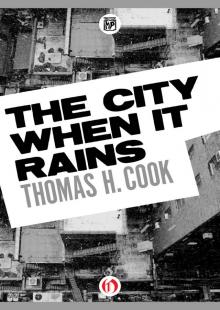 The City When It Rains
The City When It Rains Blood Echoes
Blood Echoes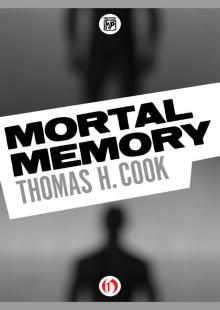 Mortal Memory
Mortal Memory Evidence of Blood
Evidence of Blood Into the Web
Into the Web The Crime of Julian Wells
The Crime of Julian Wells Blood Echoes: The Infamous Alday Mass Murder and Its Aftermath
Blood Echoes: The Infamous Alday Mass Murder and Its Aftermath Night Secrets
Night Secrets Places in the Dark
Places in the Dark The Orchids
The Orchids Elena
Elena Streets of Fire
Streets of Fire Instruments of Night
Instruments of Night Sacrificial Ground fc-1
Sacrificial Ground fc-1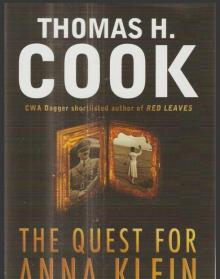 The Quest for Anna Klein
The Quest for Anna Klein Sandrine's Case
Sandrine's Case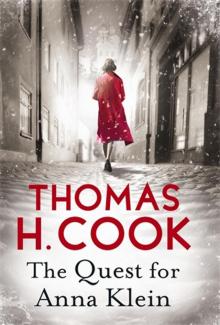 Quest for Anna Klein, The
Quest for Anna Klein, The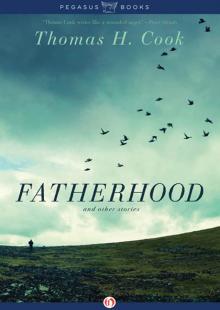 Fatherhood
Fatherhood Flesh and Blood
Flesh and Blood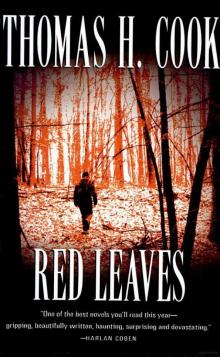 Red Leaves
Red Leaves